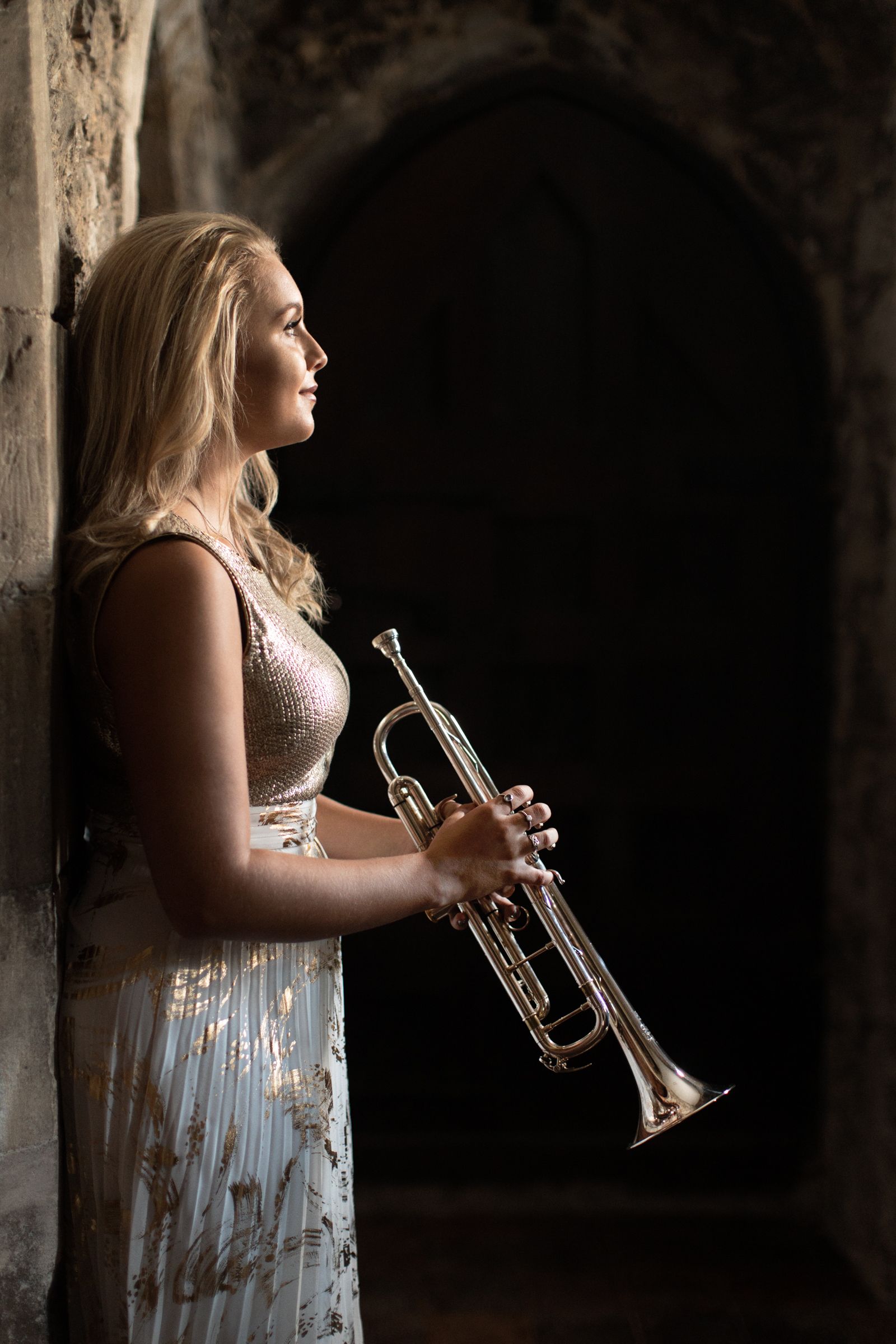
I would like to start with an apology if I am a little late to the party, but I have had a month of listening to and conversing with Matilda Lloyd and what a pleasure it has been, Matilda is a wonderful musician and has a desire to make everyone aware of the merits of the Trumpet and what a great job she is doing.
A Q&A, a CD release and a recital all in a very short amount of time and I have nothing but admiration for such a talented and down to earth musician who started out at the age of 5 when she was given some rhythms to play on piano by her mum who is a piano teacher. At the age of 8 Matilda came across the Trumpet while on the look-out for a toy to play with, Dad’s old trumpet was in the cupboard, not played since Dad was at school and when given the chance Matilda was able to make a decent noise, so lessons started and the rest is history.
Here are a few more of the questions I asked Matilda:
I have seen and heard a video of you playing with Cory Band, has Brass Banding taken a role in your career or was this a one-off project. Did/do you enjoy playing with Brass Bands
- I grew up near Sevenoaks in Kent, so I didn’t grow up in the Brass Band tradition. I did play in the Oxted Silver Band for a couple of years while I was in school, and also in the Brass Band at Junior Guildhall – very good for one’s technique! I have performed quite a few times now as a soloist with Brass Band, which I absolutely love. Most of those performances came as a result of winning the Radio 2 Young Brass Award in 2014 – there are some wonderful arrangements of the Haydn and Hummel with brass band accompaniment that are great fun!
Have you written or arranged any music or do you leave that to others
- I think it’s important in life to recognise where you skills are, and where they aren’t! I have transcribed a little bit of music for trumpet and organ, or performed a vocal line with piano, but I leave the composing and arranging to others! I have some very talented friends who do a lot of arranging for me, and I am commissioning some new works from composers such as Robin Haigh and Dani Howard that I am very excited about.
Have you conducted or have any desire to take up conducting
- I haven’t done much conducting yet, but it is something I would definitely like to explore in the future! I would love to be able to conduct brass ensembles, but I will need to take some lessons first.
Do you have a particular genre of music that you like playing and what is it about it that you enjoy
- I love to play music written by composers living in the Soviet Union, because I studied that period of history at school and then in music history at Cambridge and have always found the way that the socio-political situation influenced the music of the composers at that time fascinating. The music has so many different emotions within it, whether at the surface or hidden deeper, so it is really interesting and exciting to express those in performance.
I know a CD is a lot of work, how many sessions was your new CD recorded over
- We recorded the CD over 3 days, 2 sessions a day. So 6 sessions in total, with 3 hours each. One thing I’ve learnt from recording this disc is to have a slightly longer lunch break next time!
Do you have a favourite track on the CD
- I think my favourite track is Rossini’s ‘Ah quel giorno ognor rammento’ – it was a fairly last minute addition (two months before the recording sessions) as I wanted to include an aria from his opera Semiramide, which celebrates its 200th birthday this year. It soon became my favourite track as I think it encompasses everything in it, from the beautiful lyrical cavatina, to a William Tell-esque middle section and then the fast flashy cabaletta section with an exciting ending!
Do you enjoy the process of taking a new piece and getting it concert ready
- It’s always exciting to learn a new piece! I love the process of getting a new piece concert ready – I find it very satisfying to break it down into lots of little pieces to practise, and then slowly assembling it to a whole. I always try to perform something more than once if possible, because the first time through is often a little less relaxed.
Away from music what does a relaxing weekend entail
- I love to get outside and enjoy nature! Whether that’s a long walk or hike, a swim in a lake or the sea, paddle boarding, or just strolling around Berlin (where I live at the moment) and exploring my new neighbourhood.
Do you have any more projects in the pipeline that you can tell us about
- Yes absolutely! I’m absolutely thrilled to have a relationship with Chandos Records now and we have dates in the diary this Autumn to record our next disc together.
The track list on the CD is a very good mix, did it take you a long time to choose the pieces and the order or did it drop into place
- I think that any project like a CD has a genesis, so it evolves over time. It took a couple of months to flesh out the initial concept and select a few key pieces of repertoire, but then it took another few months of research, listening, experimenting, learning, and re-jigging to come up with the final list of pieces. And even then I ended up cutting one aria (after we had arranged it) and adding two works fairly last minute! I knew I wanted the disc to centre around the golden trio of composers Rossini, Bellini and Donizetti, but it was important to me to include some of their lesser-known contemporaries and also the voice of a woman at the time (Pauline Viardot) so these were some of the factors involved in my decision making.
There are a number of conversations in the banding world about the lack of female players (although improving), composers, adjudicators and conductors. Do you have any feeling on this subject and is it something you have come across in your work and do you have an opinion on this?
- There absolutely are, and I hope these conversations continue and grow and lead to new schemes and ideas to help encourage female musicians to get involved in the banding world. Even since I was growing up, there has been great progress made – I often cite the fact that when I was at the Royal Academy of Music in London for my Masters, there was a 50/50 split of boys and girls – so I think it’s important to recognise this, and use it as fuel to improve things even further for the future!

